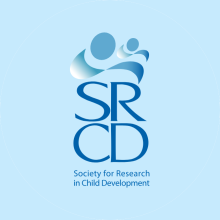December 2014 Spotlight on the SRCD Policy Fellow: Julie Leis, Ph.D.
2014-2015 Federal Executive Branch Policy Fellow
December 2014 Federal Policy Fellow Spotlight: Julie Leis, Ph.D.
Julie A. Leis, Ph.D. I am a second year fellow in the Office of Planning, Research and Evaluation (OPRE) within the Administration for Children and Families (ACF). I work across the Divisions of Child and Family Development and Family Strengthening to support research and evaluation of programs aimed at improving the well-being of low-income children and families. I am so fortunate to have the second year of the fellowship because it honestly took me an entire first year to listen, observe, and learn! Now in my second year, I feel I am able to contribute and I have taken on more of a project management or co-management role on many of my projects. I feel like I have the opportunity to shape and have an impact on the projects I work on which I find incredibly rewarding. My portfolio covers projects related to responsible fatherhood and healthy marriage, home visiting and Head Start. One of the ways in which I feel the projects that I am working on together make a contribution is working to build the capacity of the field. We are doing this by focusing on people, programs, and strengthening research methods. By doing this across projects, I feel that OPRE is strengthening the evidence we have on important programs and policies. Below are some examples of capacity building in the projects on which I work:
• I work on a variety of projects related to Head Start, one of which is the Head Start Graduate Student Scholars Grants. Last year I revised the Funding Opportunity Announcement and worked to oversee the application, grant review, and grant award process. In November of this year we had our first grantee meeting with the scholars and their mentors and strengthening research capacity of people was particularly clear to me at this meeting. It was a really neat experience to learn from these advanced graduate students who are doing work in partnership with Head Start programs. It was not only that the current projects the Scholars are working on are meaningful, but that a number of the mentors who came with the Scholars were themselves former Head Start Scholars. We are building multiple cohorts of researchers who know how to work with Head Start programs to conduct research reflecting the concerns and questions of programs with the ultimate aim of strengthening Head Start.
• My work on the Fatherhood and Marriage Local Evaluation and Cross-site Project (FaMLE CrossSite) has taught me a lot about the importance of building and strengthening the research capacity of programs. This project aims to support high quality data collection, strengthen local evaluations, and conduct cross-site analysis for Responsible Fatherhood and Healthy Marriage Grantees. There are many grantees providing important services but they may not have the background to know how to document and share the work they are doing through research. I think it’s really important to be able to strengthen the capacity of local programs to gather, interpret, and report data so that the grantees can take part in evaluation research and also so that they have data to guide their own efforts. Strengthening the research capacity of grantees is critical to determining the effectiveness of these programs, which in turn has important policy implications.
• As part of my work on the Mother and Infant Home Visiting Program Evaluation (MIHOPE) Checkin Project, I am helping to build capacity in terms of methodology. The purpose of MIHOPE Check-in is to update contact information for families who participated in the national evaluation of the Policy Watch Maternal, Infant, and Early Childhood Home Visiting (MIECHV) Program to ensure that it is possible to examine the long-term impacts of MIECHV. One of the things we are currently working on is a summary of best practices for tracking families and maintaining high rates of follow up. This is an issue that cuts across many of the projects in OPRE and we hope our findings from this work will inform OPRE projects and practices and potentially the field.
During graduate school, one of my mentors instilled in me the importance of intervening at the family level in order to improve children’s outcomes and that became a career goal for me. By being placed at OPRE, I have truly been able to achieve this goal: simultaneously working to improve outcomes for children and families. I am so grateful I have found a place where I can do work that impacts children and families and fulfill my professional mission. I am incredibly grateful to my colleagues and mentors at OPRE and SRCD for this experience.
